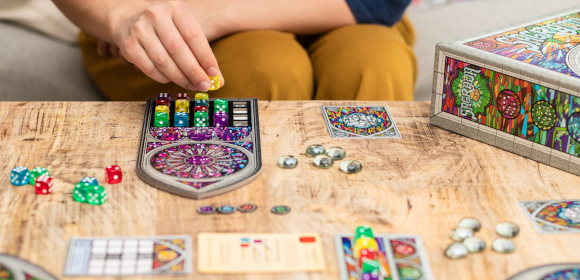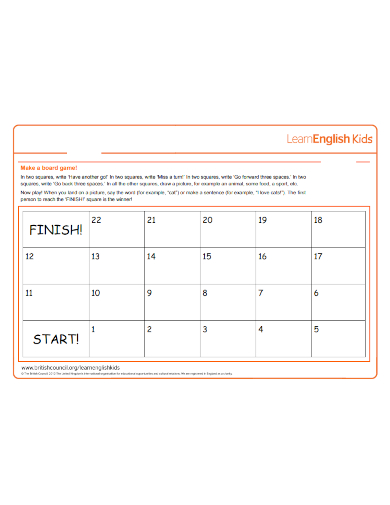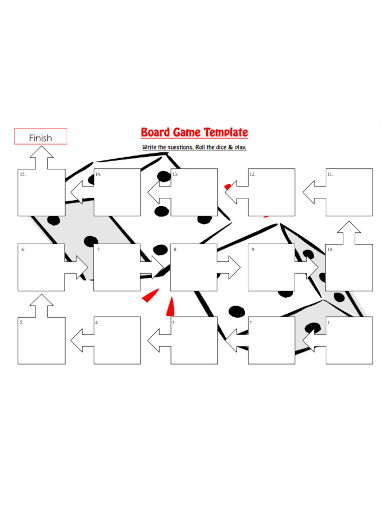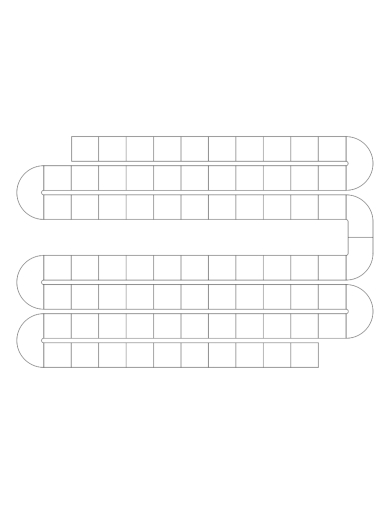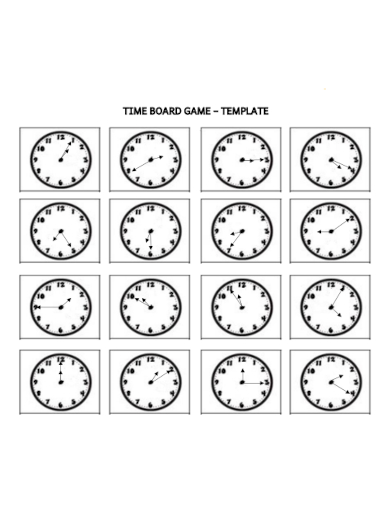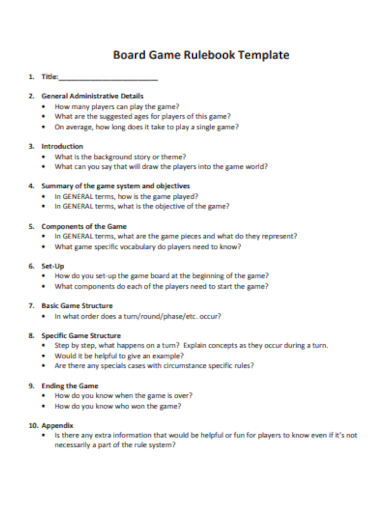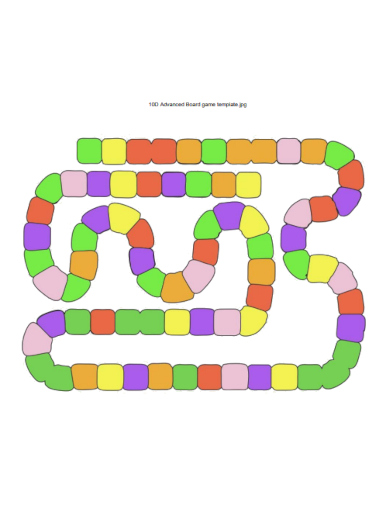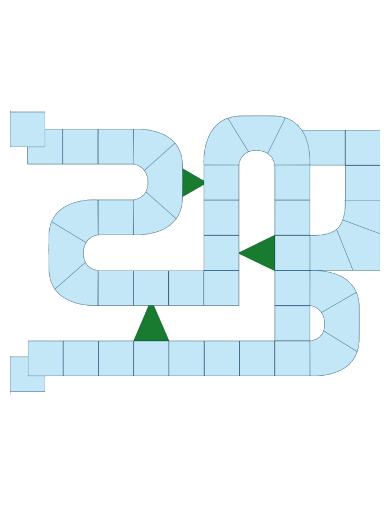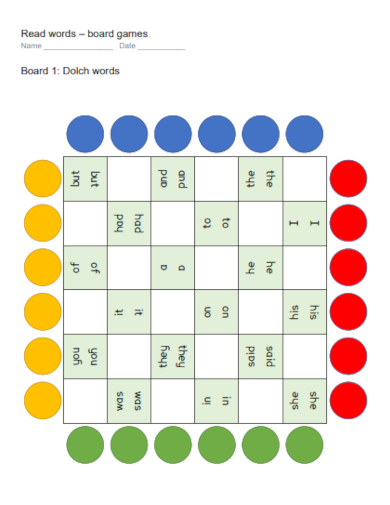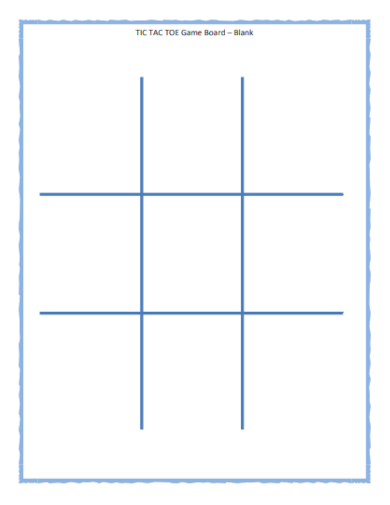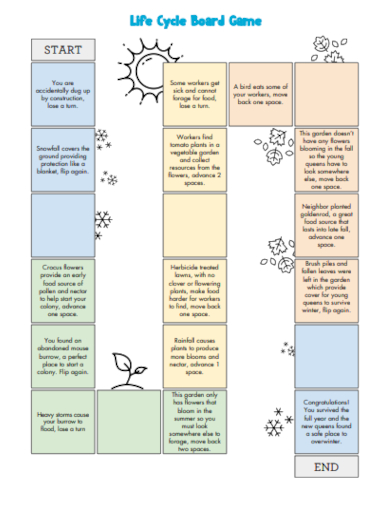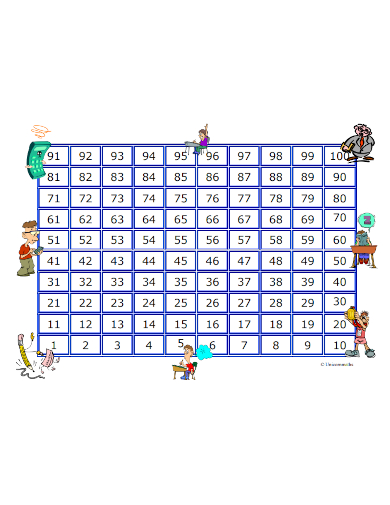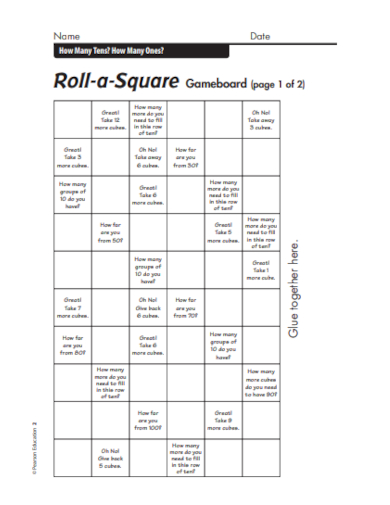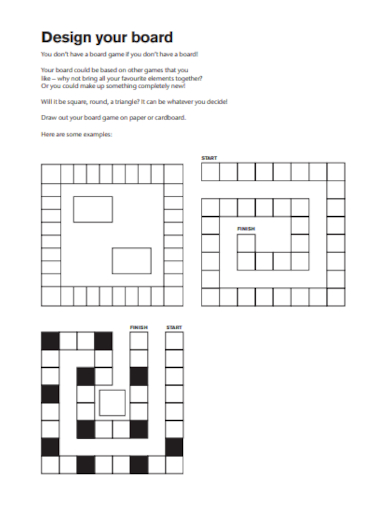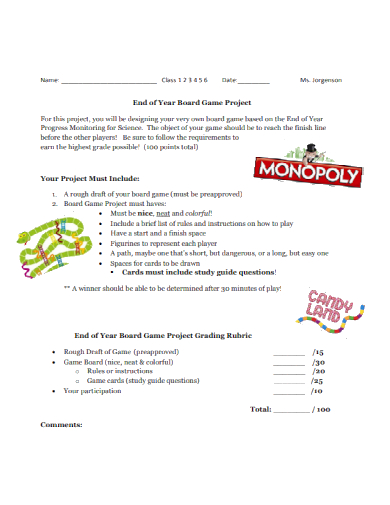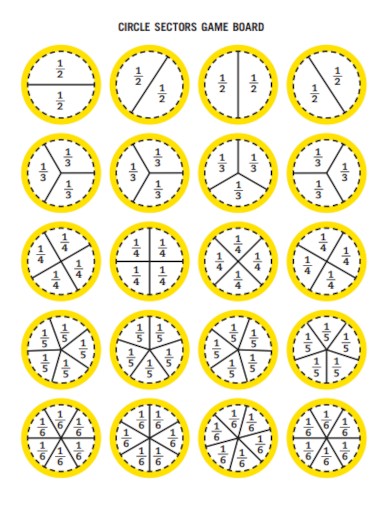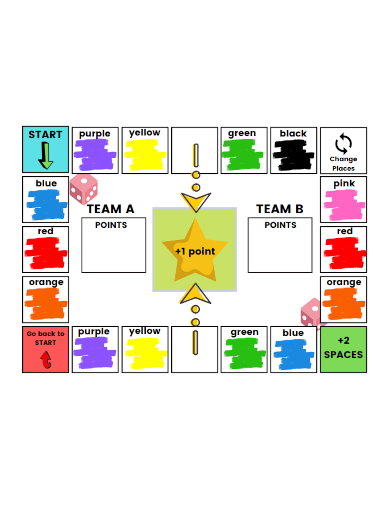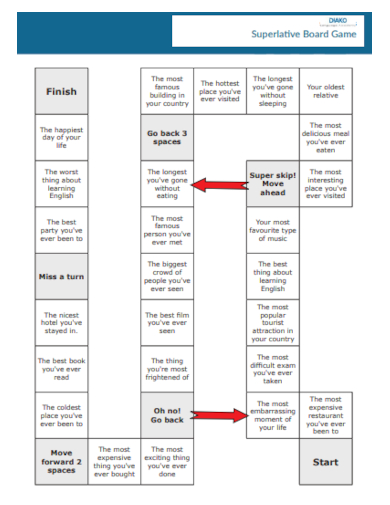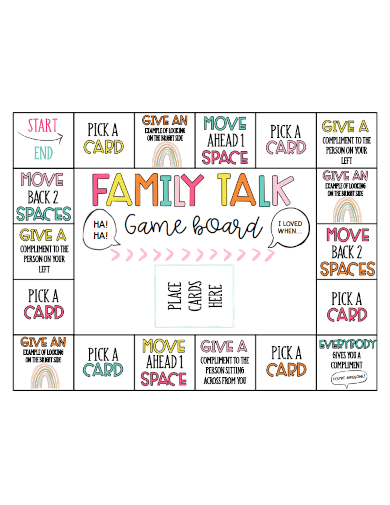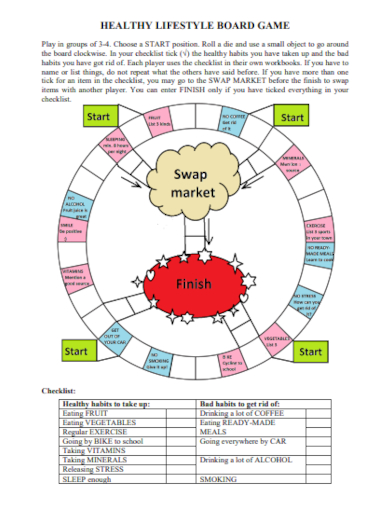Step into a world of endless fun and strategy with our Sample Board Game Template! Whether you’re a seasoned game designer looking to create the next big hit or a casual player eager to craft a unique gaming experience, our template is your creative playground. With its user-friendly design and customizable features, you’ll have the power to bring your board game visions to life. Get ready to embark on a journey of innovation and excitement as you explore the limitless possibilities of board game creation.
20+ Board Game Samples
1. Board Game Template for Kids
2. Printable Board Game Template
3. Blank Board Game Template
4. Classic Time Board Game
5. Simple Board Game Rule Book
6. Candyland Board Game Template
What is a Board game?
A board game is a form of tabletop entertainment that involves players engaging in a structured, rule-based competition on a flat surface, typically using a board as the central component. These games have been a source of amusement, social interaction, and strategic challenge for centuries, transcending cultural boundaries and appealing to a wide range of age groups.
At the core of a board game is a playing board, often decorated with a grid or a unique layout of spaces. The board serves as the canvas upon which the game unfolds, guiding players through various actions, decisions, and challenges. Players use game pieces, which can include tokens, cards, dice, or figurines, to interact with the board and each other as they progress toward a common goal or objective.
Board games come in various genres and themes, catering to diverse interests and preferences. Some are based on strategy, where players must plan their moves carefully to outmaneuver opponents, while others focus on luck, with outcomes determined by dice rolls or card draws. Popular board game genres include:
Strategy Games: Games like Chess and Settlers of Catan emphasize critical thinking and long-term planning. Success often depends on players’ ability to anticipate their opponents’ moves and adapt to changing circumstances.
Party Games: These are designed for large groups and prioritize social interaction and laughter. Examples include Pictionary and Apples to Apples.
Deck-Building Games: In these games, players construct a personalized deck of cards as they play, aiming to create powerful combinations. Dominion and Ascension are well-known examples.
Cooperative Games: Instead of competing against each other, players work together to achieve a common objective. Pandemic and Forbidden Island are popular cooperative board games.
Adventure and Storytelling Games: These games immerse players in a narrative-driven experience. Games like Dungeons & Dragons and Gloomhaven fall into this category, allowing players to create characters and embark on epic quests.
Classic Games: Timeless classics like Monopoly, Scrabble, and Risk continue to be enjoyed by generations of players.
The appeal of board games lies in their ability to foster social interaction and promote critical thinking, problem-solving, and decision-making skills. They offer a break from digital screens and encourage face-to-face communication, making them an excellent choice for family gatherings, parties, or quiet evenings at home.
Board game design has evolved significantly over the years, with modern games featuring intricate mechanics, stunning artwork, and immersive storytelling. Many board game enthusiasts also delve into the world of game design, creating their own games and sharing them with the gaming community.
In recent years, board games have experienced a resurgence in popularity, driven in part by the growth of board game cafes, online platforms for playing digital versions, and crowdfunding platforms like Kickstarter, which have enabled independent designers to bring their creations to a global audience.
Whether you’re looking for a fun way to spend quality time with friends and family, a mental challenge to sharpen your strategic thinking, or a creative outlet to design your own games, board games offer a rich and diverse world of entertainment and possibilities. They continue to captivate players of all ages, transcending the boundaries of time and culture.
7. Fun Board Game Example
8. English Words Board Game
9. Grid Board Game Template
10. Life Cycle Board Game
11. Math Board Game Template
12. Roll Square Game Board
13. DIY Board Game
How to create a Board game template?
Creating a board game template is an exciting and creative process that involves designing the basic framework for a board game that others can use as a starting point for their own game ideas. Here are the steps to create a board game template:
Define Your Concept and Theme:
Start by brainstorming the concept and theme of your board game template. What is the central idea or story behind the game? Themes can range from fantasy and sci-fi to historical, educational, or abstract.
Choose Game Mechanics:
Decide on the core mechanics of your game. Will it be a strategy game, a role-playing game, a card game, or something else entirely? Determine how players will interact with the game board, make decisions, and progress toward the game’s objectives.
Create the Game Board:
Design the game board itself. You can do this digitally using graphic design software like Adobe Illustrator or by hand on paper. The game board should reflect the theme and mechanics of your game and include spaces, paths, and any necessary markings.
Develop Game Components:
Identify and create the components players will use, such as cards, tokens, dice, or figurines. Ensure that these components align with your game’s theme and mechanics. Design and illustrate any necessary artwork or icons.
Write Rules and Instructions:
Develop clear and concise rules for your board game. Explain how to set up the game, how turns work, how players win, and any special rules or actions. Make sure your instructions are easy to understand, even for someone who has never played the game before.
Playtest and Refine:
Test your board game template with a group of playtesters. This step is crucial for identifying any flaws, imbalances, or confusing aspects of the game. Gather feedback and make adjustments as needed to improve the gameplay.
Design Templates and Components:
Create digital templates for the game components, such as cards or tokens, using graphic design software. Ensure that these templates are customizable so that others can easily modify them to fit their own game ideas.
Provide Instructions for Customization:
Include detailed instructions or guidelines on how users can customize your board game template. This might involve replacing artwork, changing rules, or adapting components to suit their unique game concepts.
Share Your Template:
Make your board game template accessible to others. You can share it on board game design forums, websites, or social media platforms. Consider creating a downloadable file or a printable version for ease of use.
Seek Feedback and Collaboration:
Encourage users to provide feedback and share their customized versions of your template. Collaboration within the board game design community can lead to improvements and new ideas.
Continuously Update and Improve:
Be open to updating and improving your board game template based on user feedback and your own insights. Regularly check for new versions or updates to ensure that your template remains relevant.
Creating a board game template is a labor of love that allows you to share your passion for game design with others. By following these steps and fostering a community of creative individuals, you can contribute to the world of board gaming and inspire others to bring their own unique game ideas to life.
14. Board Game Design Layout
15. Monopoly Exam Board Game Project
16. Circle Board Game Template
17. Colorful Board Game
18. Board Game Card Template
19. Basic Superlative Board Game
20. Family Talk Board Game
21. Healthy Lifestyle Board Game
What are board game ideas?
Board game ideas are the concepts, themes, and gameplay concepts that form the foundation of a tabletop game. They are the creative spark that drives the development of a unique and engaging board game. Generating innovative board game ideas requires a blend of creativity, imagination, and an understanding of what makes games enjoyable. Here are some sources and methods for coming up with board game ideas:
Inspiration from Everyday Life: Everyday experiences, hobbies, and interests can be a rich source of board game ideas. Think about your own life and the activities you enjoy. For example, if you’re passionate about gardening, you could create a gardening-themed board game where players cultivate and compete for the most beautiful garden.
Literature and Pop Culture: Books, movies, TV shows, and other forms of entertainment can inspire board game ideas. Adapt the characters, settings, or themes from a beloved story into a tabletop game. For instance, a game based on a popular fantasy series might involve quests, magical creatures, and epic battles.
Historical Events: History provides a wealth of fascinating stories and settings for board games. You can draw inspiration from different time periods, wars, explorations, or historical figures. Creating a game set during the Roman Empire, the Renaissance, or the Wild West, for example, can be captivating.
Puzzles and Challenges: Think about puzzles or challenges you enjoy solving, and consider how they can be turned into a game. Sudoku, crossword puzzles, and escape room challenges have all been adapted into board games that offer players mental stimulation and problem-solving opportunities.
Mechanics First: Sometimes, it’s the gameplay mechanics themselves that spark an idea. Start with a unique mechanic or game mechanism and build a theme and narrative around it. For instance, the mechanic of tile-laying can be the foundation for various themed games, from building cities to exploring dungeons.
Social Interaction: Board games often thrive on social interaction. Consider how players can interact with each other in fun and interesting ways. Party games like “Werewolf” and “Codenames” focus on player interaction and deduction, making for memorable gaming experiences.
Environmental or Ethical Themes: Addressing important environmental or ethical issues in a board game can be both educational and thought-provoking. Create a game that explores topics like climate change, conservation, or social justice, allowing players to learn while they play.
Unique Settings and Worlds: Develop imaginative and fantastical settings that transport players to otherworldly realms. Whether it’s a game set in a steampunk city in the clouds or an underwater kingdom of merfolk, unique worlds can captivate players’ imaginations.
Collaboration with Others: Brainstorming with friends or fellow game designers can lead to fresh board game ideas. Collaborative sessions can generate diverse perspectives and inspire new concepts.
Feedback and Iteration: Don’t be afraid to iterate on existing board game ideas. Take an existing game and put your own twist on it, incorporating new mechanics or themes to make it your own.
Remember that the key to a successful board game idea is not just the concept itself but also the execution. Playtesting, refining, and balancing the gameplay are essential steps in bringing your board game idea to life. With creativity and perseverance, you can turn your board game ideas into engaging and memorable tabletop experiences.
Related Posts
FREE 7+ Sample Hand and Foot Score Sheet Templates in Google ...
FREE 8+ Sample Wrestling Score Sheet Templates in PDF MS ...
FREE 3+ Game Design Proposal Samples in PDF DOC
FREE 8+ Sample Tennis Score Sheet Templates in PDF
FREE 9+ Sample Scrabble Score Sheet Templates in MS Word PDF
FREE 7+ Sample Scoreboards in PSD EPS
FREE 10+ Sample Cricket Score Sheet Templates in PDF
FREE 5+ Blank Cheque Samples in PDF PSD
FREE 10+ Sample Bridge Score Sheets in PDF
FREE 50+ Drawing Board Samples in PDF
FREE 10+ Annual Self Evaluation Samples [ Performance ...
FREE 14+ Sample Hundreds Chart Templates in PDF MS Word
FREE 8+ Sample Chess Score Sheet Templates in PDF MS Word
FREE 9+ Sample Dot Game Templates in PDF
FREE 5+ Interactive Storyboards in MS Word PDF
